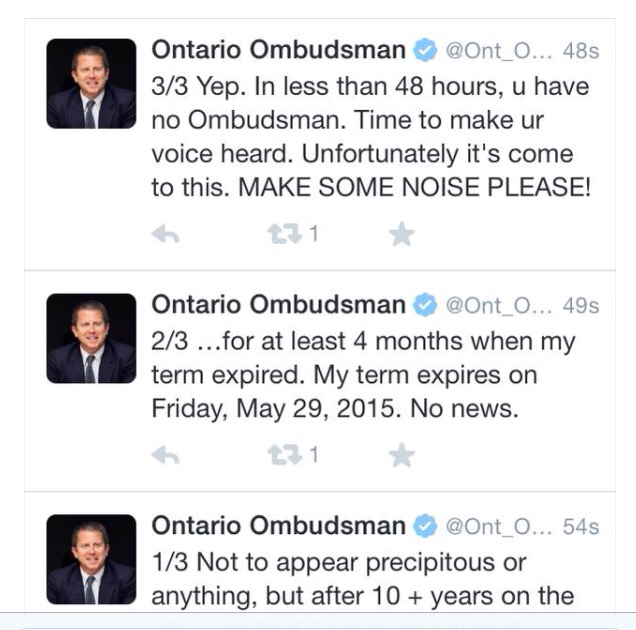Here’s what Senior Statesman Ed Broadbent says:
The polling done by the Broadbent Institute shows Canadians support those ideas.
“Time after time, we find on almost every issue, a majority of Canadians are social democrats,” he says.
“On tax policy, on (the) Canada Pension (Plan), a whole range of issues that are reasonably described as social democratic, there is a significant majority of Canadians that are on that side.”
Broadbent says the long-term trend shows voters are warming to the NDP.
“One of the things that is happening now, and we’ll see if (it) persists in the election, is where some of those (voters) were split in their partisan positions, they’re increasingly coming behind the NDP.”
Leaving aside how ridiculous it is that “polling done by the Broadbent Institute” in a story about Ed Broadbent is considered in any way relevant, let’s reflect on the big question of the moment: is the NDP’s rise permanent?
Personally, I think it isn’t just an NDP thing. There are a number of variables at work, here:
- Justin Trudeau peaked too soon. That – plus the serial gaffes, the paucity of policy, the arrogance of an inner circle who have angered legions of Liberals, and the emerging consensus that he “just isn’t ready” – have crystallized at precisely the wrong moment for the Liberal leader. For two years, his message was: “If you are looking for a progressive alternative to Stephen Harper, I’m the only guy that fits the bill.” After Alberta, after months of slow but steady NDP growth, that is no longer true.
- The NDP, and their base, ain’t what they used to be. When the trade union movement started to founder and lose relevance, everyone thought that would be a death knell for the NDP. It wasn’t. In fact, it helped to de-radicalize the Dippers in the eyes of many voters. Simultaneously, another thing happened: the Dippers chose to be what Norman Spector once described to me as “mature social democrats” – that is, Romanow-style balance-the-budget types who see government as a force for good, but not the solution to every problem. The Kooky-York-University-Sid-Ryan-nationalize-everything-hate-Israel types lost out.
- Angry Tom, Angry Voters. Plenty of pundits – me among them – thought Mulcair’s genetic predisposition towards anger would kill him, just as it had back when he was a Quebec Liberal. It didn’t. In fact, Tom’s anger turned on many more voters than it turned off – because they, as it turned out, were angry too. Voters were looking for a politician who was angry as they were about the federal Conservatives, and about the direction in which the country was headed. And along came Prosecutor Tom, all righteous indignation and fury, giving the Tories what-for in Question Period. Mulcair matched the popular mood.
- The key attributes of the leaders. Innumerable focus groups have been conducted about Messrs. Harper, Trudeau and Mulcair, of course. No news there. Moderators in these groups typically ask participants for one or two words to describe each leader. Here’s what they’ve gotten back, over and over: Harper is “serious, experienced.” Trudeau is “progressive, new, change.” Mulcair is “serious, progressive.” See the problem for the Tories and the Grits? Only one leader – Mulcair – embodies positives of each of the other options. He’s “serious and progressive” at a time when voters seemingly want both.
- The media have bought into the Harper narrative on Trudeau. Reporters spend almost as much time with Justin Trudeau as his family does, perhaps more. And they have concluded, with considerable reluctance, that Harper’s shorthand on Trudeau – now contained in multi-million-dollar ad buy coming soon to a television near you – is accurate. He really isn’t ready yet. Nice guy, not ready.
There are other variables at work, but I think those are the main ones. Can New Democrats sustain the resulting dynamic over barbecue season? Hard to do, but not impossible.
As a public service, I offer only four words of caution: 1. Adrian 2. Dix. 3. Olivia 4. Chow.
Both of those people were initially considered inevitable winners, too, weren’t they? In the latter case, I saw up close what the electorate eventually saw. Chow was a lousy communicator, she didn’t offer much in the way of ideas, and she didn’t inspire. Similarly, Dix lacked Christy Clark’s verbal dexterity, he played it too safe, and he had the worst debate performance in modern times.
Nobody can accuse Angry Tom of lacking communication and debate skills. Nobody can say that he isn’t putting ideas out there, or occasionally taking risks.
But you Dippers out there in the Internet ether know I speak the truth, don’t you?
Orange Crush, the drink, can go flat in no time at all.
Comments (76)



